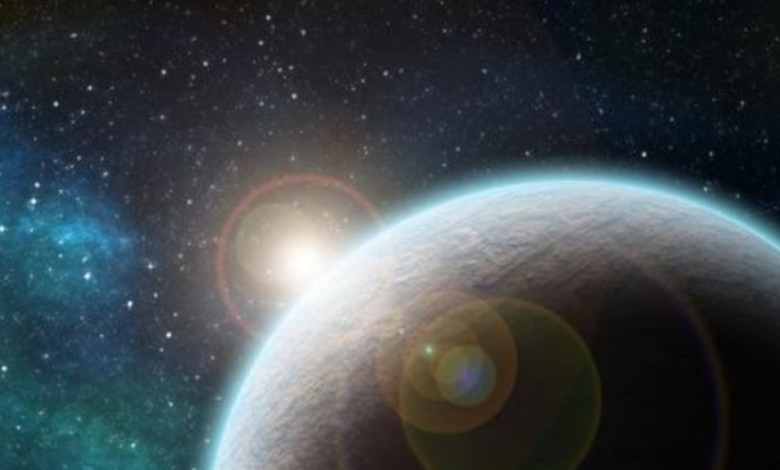Why looking for aliens is good for society (even if there aren’t any)

The look for life elsewhere in the universe is one of one of the most compelling elements of modern scientific research. Offered its clinical importance, significant resources are dedicated to this young science of astrobiology, ranging from vagabonds on Mars to telescopic monitorings of planets orbiting other stars.
The holy grail of all this task would be the real discovery of alien life, and such a discovery would likely have extensive clinical and thoughtful implications. Yet extraterrestrial life has actually not yet been found, as well as for all we understand might not even exist. Fortunately, even if alien life is never ever discovered, all is not lost: merely searching for it will generate valuable benefits for society.
Why is this the situation?
First, astrobiology is inherently multidisciplinary. To look for aliens needs a grip of, at the very least, astronomy, biology, geology, and also planetary science. Undergraduate courses in astrobiology require to cover components of all these various disciplines, as well as postgraduate as well as postdoctoral astrobiology scientists furthermore need to be familiar with many or all of them.
By forcing multiple clinical self-controls to interact, astrobiology is stimulating a partial reunification of the sciences. It is assisting to relocate 21st-century scientific research away from the severe specialisation these days and back in the direction of the much more interdisciplinary expectation that prevailed in earlier times.

By creating broadminded scientists, familiar with several aspects of the environment, the research of astrobiology as a result improves the whole clinical enterprise. It is from this cross-fertilization of concepts that future discoveries might be anticipated, and such explorations will certainly make up a permanent legacy of astrobiology, even if they do not include the discovery of unusual life.
It is also vital to identify that astrobiology is an exceptionally open-ended effort. Searching forever in deep space takes us from extreme environments on Earth, to the levels and also sub-surface of Mars, the icy satellites of the giant worlds, as well as on to the all-but-infinite range of worlds orbiting various other stars. As well as this search will proceed regardless of whether life is really found in any of these atmospheres or not. The variety of totally unique atmospheres open up to examination will be essentially unlimited, and so has the prospective to be a perpetual source of clinical and also intellectual stimulation.

The cosmic perspective
Beyond the extra directly intellectual advantages of astrobiology are a variety of wider social benefits. These develop from the type of point of views– planetary in range– that the research study of astrobiology naturally advertises.
It is just not possible to take into consideration looking for life on Mars, or on a planet orbiting a far-off star, without moving away from the narrow Earth-centric viewpoints that control the social as well as political lives of many people most of the moment. Today, the Earth is faced with worldwide difficulties that can just be fulfilled by improved worldwide participation. Yet around the world, patriotic as well as religious ideologies are acting to piece humankind. At such a time, the growth of a unifying planetary viewpoint is potentially of enormous relevance.
In the very early years of the space age, the after that US ambassador to the United Nations, Adlai Stevenson, stated of the globe: “We can never ever once again be a squabbling band of nations before the dreadful majesty of outer space.” Sadly, this point of view is yet to sink deeply right into the prominent awareness. On the other hand, the broad public interest in the look for life elsewhere implies that astrobiology can function as a powerful instructional automobile for the popularisation of this perspective.
Undoubtedly, it is just by sending spacecraft out to check out the planetary system, in huge component for astrobiological purposes, that we can get pictures of our own earth that show it in its real planetary setting.

In addition, astrobiology offers a vital evolutionary point of view on human events. It requires a feeling of deep, or large, background. As a result of this, numerous undergraduate astrobiology courses start with an overview of the background of the universe. This starts with the Big Bang and also moves together through the beginning of the chemical components, the development of celebrities, galaxies, and also planetary systems, the beginning of life, as well as evolutionary background from the first cells to complicated animals such as ourselves. Deep background similar to this aids us situate human events in the vastness of time, and also for that reason enhances the cosmic viewpoint given by area expedition.
Political ramifications
There is a popular saying, widely credited to the Prussian biologist Alexander von Humboldt, to the impact that “the most harmful worldview is the worldview of those that have actually not viewed the world”. Humboldt was presumably considering the mind-broadening possibility of international traveling. However knowledge with the cosmic and also evolutionary viewpoints given by astrobiology, powerfully reinforced by actual sights of the Earth from space, can certainly likewise act to broaden minds in such a way regarding make the globe much less fragmented as well as dangerous.
I assume there is a vital political implication inherent in this point of view: as an intelligent technological types, that currently controls the just known occupied earth in deep space, humankind has a responsibility to establish international social as well as political establishments appropriate to handling the situation in which we discover ourselves.
In ending his monumental Outline of History in 1925, HG Wells famously observed: “Human background ends up being a growing number of a race in between education as well as disaster.” Such an observation appears specifically germane to the geopolitical circumstance today, where evidently illogical choices, usually made by federal governments (and also indeed by whole populations) relatively oblivious of broader point of views, might undoubtedly lead our world to disaster.

